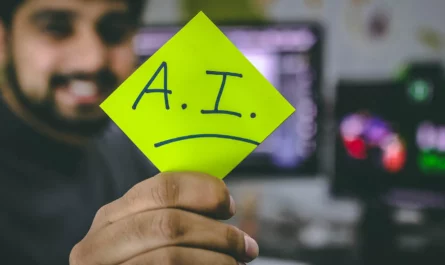In a world rapidly transforming through the power of artificial intelligence (AI), understanding the intersection of human rights and AI becomes crucial. Technological advancements and the increasing use of AI systems bring forth unprecedented opportunities, but not without potential threats to our fundamental rights. This intersection goes well beyond personal privacy issues into the realms of decision-making processes, potential AI biases, and freedom of expression. Equally important is the need for ethical frameworks for AI that emphasize principles such as fairness, transparency, and accountability. These guidelines, while currently considered standardized, may need future enhancements as technologies evolve. Furthermore, an examination of AI policy and legislation uncovers an intricate web of regulations seeking to mitigate the impacts of AI on society, each with their unique merits and shortcomings.
The Intersection of Human Rights and Artificial Intelligence
The Intersection of Artificial Intelligence and Human Rights: Navigating a New Frontier
Artificial Intelligence (AI), once a fixture of science fiction, has made a triumphant foray into the realm of reality. As AI continues to evolve, it is increasingly intersecting with a domain of traditional human specificity: human rights. A specialized computational system with the adept ability to mimic human functions, AI holds great promise in fields ranging from medicine to architecture, commerce to transportation. Yet, there are undeniable, serious implications for human rights that must be scrutinized closely.
One of the key dilemmas stemming from AI advancement is the issue of privacy. Commonly utilized AI technologies, such as facial recognition and data mining algorithms, can have invasive consequences for personal privacy. While these technologies hold the potential to make significant strides in security and predictive analytics by recognizing patterns in bulk data, there is an unmistakable risk of citizens becoming ensnared in a surveillance web without their knowledge or consent. The balance between the utility of AI-enhanced monitoring and protecting individuals’ right to privacy is a contentious area requiring careful, deliberate discourse among AI developers, lawmakers, and human rights advocates.
The advent of AI has also propelled forward the ongoing discussion on employment and labor rights. AI-powered systems possess the capacity to execute tasks that once necessitated human hands and minds. Such transition bears the dual-edged potential of increased efficiency and reduced labor demand, subsequently prompting substantial concerns about job displacement, income inequality, and worker wellbeing. AI’s rapidly evolving competence requires a reevaluation of economic structures to safeguard the rights and livelihoods of those employed in AI-vulnerable sectors.
In the realm of decision-making, the role of AI poses another interesting dilemma. As AI is increasingly adopted in sectors such as criminal justice or credit lending, there is a growing concern about the inherent impartiality of algorithms. Even though AI is theoretically non-biased, it is fundamental to acknowledge that AI is programmed by humans, who, consciously or unconsciously, may incorporate biases. Hence, there is a pressing need to establish transparent algorithmic standards to prevent potential discrimination and ensure fairness.
Moreover, as AI systems augment the human experience, questions about human dignity and autonomy cannot be overlooked. AI as decision-making entities could lead to a diminution of human agency, where human beings become overly reliant on AI systems for decisions tied closely to their identity and life path. A nuanced understanding is required of the potential human rights implications of increasingly autonomous AI systems.
As AI transitions from the realm of the imagined to the practical, it is essential to grapple with the significant human rights questions it raises. A concerted, multilateral commitment to navigating this complex intersection between AI and human rights is paramount to progressing toward a future where AI enhances human endeavor, rather intruding upon it. Ethical and policy frameworks must continue to evolve to manage AI advancements, thereby ensuring the safeguarding of human dignity and rights in this new frontier.

Ethical Frameworks for AI
Establishing Ethical Frameworks for AI: The Impending Imperative
As the evolution of Artificial Intelligence (AI) forges ahead unabatedly, the critical necessity for comprehensive ethical frameworks come into sharp relief. Ensuring ethical conduct in the creation and application of AI systems is firmly entrenched in the realm of essential considerations. Beyond what has previously been discussed with regard to privacy, labor rights, impartiality, autonomy, and human rights, there exist two equally vital areas in which these ethical frameworks need to be solidified: understanding societal effects and fostering transparency.
Understanding the Societal Effects of AI
Undeniably, AI systems exert considerable impacts on society – both directly and indirectly. They shape social interactions, influence economic structures, and at times, even propel cultural shifts. Ethical frameworks must undoubtedly consider these implications. Proper implementation of AI requires a thorough analysis of the societal impacts, taking into account the broad spectrum of socio-cultural diversity in existence today. Understanding this is key to prevent exacerbating existing inequalities, marginalization, and injustice.
Moreover, AI’s potential to manipulate opinion and behavior, magnify ‘fake news’ propagation, or even facilitate malicious intents demands specific ethical guidelines. The broader societal effects of AI cannot be merely an afterthought. Instead, these implications should be assessed, envisaged, and mitigated proactively.
Promoting Transparency in AI Systems
Transparency, a cardinal aspect of the ethical discourse on AI, is a challenging aspect given AI’s inherent complexity. AI-based decisions, particularly involving machine learning systems, often occur within what is colloquially termed the ‘black box’ – an opaque entity within which the operations remain concealed from human comprehension.
Ethical tasks cannot merely rest at ensuring AI’s outcomes are justifiable. We must strive for complete interpretability and transparency of AI systems. Only then can true accountability, and thus ethical adherence, be ensured. Transparent AI methodologies can help ensure all stakeholders comprehend the reasoning behind decisions. This is especially acute in sectors like healthcare or justice, where AI decisions can be life-altering.
Further, Ethical frameworks should mandate comprehensive AI system documentation, including meticulous record-keeping, explicit disclosure of the employed algorithms, and clear explanations of the training regimens utilized. Such practices contribute to the broader pursuit of accountability, enhancing the public’s confidence and trust in the use of AI.
Moving Forward with Ethical AI
The intent for AI is clear – to create systems that coexist seamlessly with humans, benefiting society. To concoct this ideal blend of human creativity and AI, ethical compass becomes our guiding tenet. As the conversation surrounding the ethical deployment of AI technology continues to evolve, embedding societal considerations and transparency into ethical frameworks needs urgent attention. No area of AI development, deployment or implication should be left untouched by the hand of ethical scrutiny. Ethical vigilance in AI, after all, marks the distinction between technology that merely performs and technology that genuinely enhances humanity’s collective existence.

AI Policy and Legislation
As Artificial Intelligence (AI) continues to evolve and transform realms beyond the imaginable, a critical and pressing discourse is how policy and legislation must change accordingly to address the imminent disruptions and their implications on human rights. Recognizing this, governmental and non-governmental stakeholders worldwide are intent on nurturing an environment that protects human rights even as it accommodates the rapid growth of AI.
Addressing the Replacement of Human Intelligence and Decision-making Capacity
The rise of AI has sparked a new wave of concerns about human intelligence and decision-making capacity being undervalued or superseded. The potential of AI to outperform humans in certain areas necessitates clear policies on decision-making responsibility, especially in critical sectors such as medicine and law enforcement. An emerging trend in legislation is the development of regulation on AI systems considering the augmentation, rather than replacement, of human intelligence and cognition. Policy-making is progressing towards ensuring AI as a tool that enhances human action and decision-making rather than rendering it obsolete.
Eradicating Exploitative Use of AI and Manipulation
Recent advancements in AI have the potential for misuse leading to manipulation, propagation of fake news, and spreading malicious intents. In an age of digital misinformation, the evolution of policy and regulation to combat these AI-fueled perils is paramount. Regulatory focus is shifting towards implementing strict documentation and disclosure standards for AI systems. These can serve to create a check-and-balance system, ensuring AI’s responsible and ethical use.
Necessity of Transparency and Accountability
AI decision-making processes, often labeled as ‘black box’ due to their opaque nature, challenge fundamental rights to transparency and accountability. Recognizing this, policy and legislation are eyeing robust measures to mandate AI’s interpretability. Steps are being taken to ensure that AI outcomes can be traced back to understand the sequential operations leading to the result. Accountability in AI decisions is also gaining legislative ground, positioning AI practices within the ethical boundaries.
Building Trust and Confidence in AI
Trust in AI continues to be a critical element. Recent policy and legislation are focusing on addressing this concern through better communication and public engagement about AI’s use and impact. Part of this legislation includes regular audits and reviews of AI systems for their performance and ethical conduct. In this view, the importance of incorporating societal values and transparency in AI frameworks is being prioritized.
In Conclusion,
The omnipresence of AI in society today signals the need for robust, anticipatory, and responsive policy and legislation. It is crucial to preserve human rights in all its forms and remain adaptable to the shifts that this technological revolution will necessitate. There is a growing consensus on the need for AI to augment humanity, not diminish it. These are early days yet, in AI’s lifecycle, and a vigilant, carefully calibrated approach is warranted in shaping the legal and ethical frameworks that will govern the relationship between AI and humans.

The Future of AI and Human Rights
Examining Future Projections: AI’s Progress and Potential Interaction with Human Rights
As we continue to peel back the layers of our understanding and potential capabilities with artificial intelligence (AI), we uncover the necessity of discussions regarding the possible implications and effects on human rights. This article navigates through projections of how AI and human rights might interact in the future, extending the analysis to aspects beyond privacy, employment rights, impartiality, and autonomy which have already been covered. With an intense focus, we explore the potential of AI in areas such as replacing human intelligence, eradicating exploitative use, enhancing transparency and accountability, and building trust and confidence.
An essential projection revolves around AI’s capacity to replace human intelligence and decision-making. AI systems that have learning capabilities, enhanced responsiveness, and decision-making authority have the potentiality of substituting for a wide range of human cognitive functions. These developments might save time and effort, and even outperform humans under particular conditions. However, it’s not without risks – such as infringement of dignity and potential loss of vital human skills.
Next, it is crucial to consider the eradication of exploitative use of AI and manipulation. As AI evolves, the probability to use these systems for manipulative and malicious acts grows. These threats encompass fake news, targeted political ads, and other forms of manipulation that can destabilize societal functioning and individuals’ rights. Concerted efforts will be required to detour AI applications from evolving into tools that exploit vulnerabilities and exacerbate societal divisions.
The ever-increasing complexity of AI systems brings transparency and accountability to the fore. There will likely be challenges in developing mechanisms to ensure accountability as it often involves a detailed understanding of intricate systems and processes. This transparency is crucial as it affects the extent to which individuals can trust AI technologies and the decisions they make, relating directly to their rights and freedoms.
Building trust and confidence in AI is pivotal for its societal acceptance. It requires not just clear laws and policy frameworks but also ethical guidelines that ensure the development and use of AI are consistent with human rights norms. Moving forward, it is expected that the interplay between human rights values and ethical principles will further shape the design, use, and governance of AI. These elements would further facilitate confidence in AI technologies.
As AI continues its forward stride, the resultant societal and legal complexities necessitate our continual examination and evaluation. The protection of human rights must remain at the forefront of our concern, as we foster a world where AI amplifies human abilities not just merely substitutes them. The challenges are substantial, but with care and consideration, it is quite possible to navigate through this intricate tapestry that threads AI and human rights. Clearly, our future isn’t just about technology that functions – it’s about technology that enhances and supports our collective human experience.

The study of AI’s future and the profound implications it may have on human rights present both challenges and possibilities. Speculation includes not only the potential impacts of AI technology evolutions but also how ethics, policy, and regulations may need to adapt to these advances. It is an exciting, albeit complicated, time in the evolution of AI, and our ability to shape it ethically and legally will determine whether or not we meet our aspirations for a society where technology empowers humanity rather than undermining it. As we continue to create and adapt in this intricate dance between AI and human rights, it is crucial that we value principles of transparency and fairness while pushing for comprehensive legislation and mindful policies that steer advancements in a direction that truly serves the collective human interest.
Unlock the power of AI content writing with Writio. This article was flawlessly crafted by our intelligent companion, Writio.




